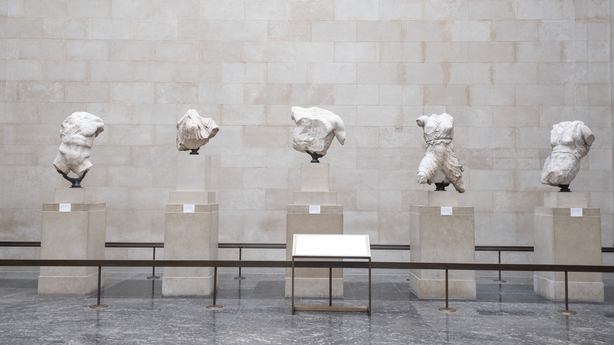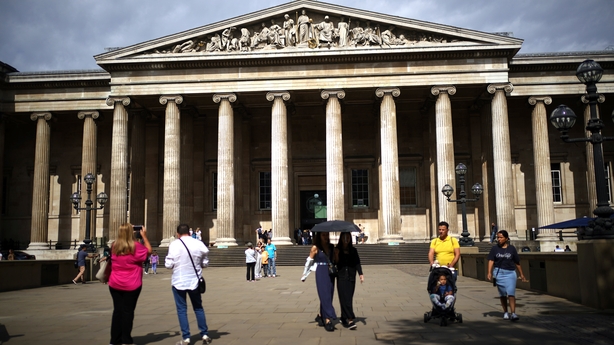Britain and Greece have disputed claims about why a prime ministerial meeting was cancelled, in a diplomatic row against a backdrop of ownership claims to ancient sculptures on display at the British Museum.
British Prime Minister Rishi Sunak had been due to hold talks with his Greek counterpart Kyriakos Mitsotakis at 10 Downing Street, at the culmination of a three-day visit to the British capital.
But an angry Mr Mitsotakis cut short his trip and headed back to Greece, voicing his "displeasure" after the meeting was shelved at the last minute.
An issue for the British government was the Greek leader's comments in a BBC interview on Sunday about ownership of the 2,500-year-old Parthenon Marbles, also known as the Elgin Marbles.
The sculptures were taken from the Parthenon temple at the Acropolis in Greece in the early 19th century by British diplomat Thomas Bruce, the earl of Elgin.
The Greek government maintains the marbles, which are a major draw for visitors at the London museum, were stolen, while the UK claims they were obtained legally.

The issue has been a bone of contention between the countries for decades but Greek diplomats have been lobbying for a deal that could see the sculptures returned under some kind of loan arrangement.
It is believed Mr Sunak was angry about Mr Mitsotakis's comments that having some of the marbles in London and others in Athens was like cutting the Mona Lisa in half.
Assurances?
According to a government source in Greece, "the marbles issue was on the agenda, among other bilateral and international issues, as it had been in the past".
"Downing Street was aware of it," the source added.
However in Britain, Mr Sunak's spokesman maintained that the Greek government had "provided reassurances that they would not use the visit as a public platform to relitigate long, long settled matters relating to the ownership of the Parthenon sculptures".
"Given those assurances were not adhered to, the prime minister (Sunak) felt it would not be productive to hold a meeting dominated by that issue, rather than the important challenges facing Greek and British people," he told reporters.
A Greek source denied to the BBC that it had made the assurances claimed by Downing Street.
Mr Mitsotakis said in a statement: "I would like to express my displeasure at the British Prime Minister's cancellation of our meeting just a few hours before it was due to take place."
He reportedly declined a UK offer to meet Deputy Prime Minister Oliver Dowden instead.
Despite the spat, Downing Street insisted the relationship between the two NATO allies was "hugely important", including on key shared policy issues such as tackling irregular migration.
'Bad day'
Greek Development Minister Adonis Georgiadis described the 11th hour cancellation as a "bad day" for relations.
"I think your prime minister, when he has second thoughts, will understand that the Greek prime minister is an important person," he told BBC radio.
"The Greek people have re-elected him and put their trust in him. I have to be very honest, what Kyriakos Mitsotakis mentioned in his interview is not just his own opinion."
"It is the single one opinion of 11 million Greek people and I think many more million people around the world."

The British Museum, like other Western institutions, is coming under increasing pressure to repatriate foreign antiquities in its collection considered by some as the looted spoils of the empire.
The Parthenon Marbles are the most celebrated case but the UK government's position is that it does not support their return, despite recent suggestions of a possible "cultural exchange".
The 1963 British Museum Act prohibits the removal of objects from the institution's collection.
Labour leader Keir Starmer, who met Mr Mitsotakis yesterday, is in favour of keeping the legislation but indicated he would not block a mutually acceptable loan deal if he becomes prime minister.
Mr Sunak's spokesman told reporters a loan would be "potentially a slippery slope" to further restitution claims.
"That's not something we would support," he added.

